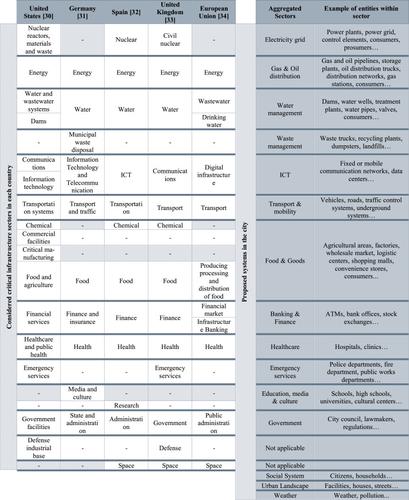当前位置:
X-MOL 学术
›
Simul. Model. Pract. Theory
›
论文详情
Our official English website, www.x-mol.net, welcomes your feedback! (Note: you will need to create a separate account there.)
Towards resilient cities: A hybrid simulation framework for risk mitigation through data-driven decision making
Simulation Modelling Practice and Theory ( IF 4.2 ) Pub Date : 2024-03-12 , DOI: 10.1016/j.simpat.2024.102924 David Carramiñana , Ana M. Bernardos , Juan A. Besada , José R. Casar
Simulation Modelling Practice and Theory ( IF 4.2 ) Pub Date : 2024-03-12 , DOI: 10.1016/j.simpat.2024.102924 David Carramiñana , Ana M. Bernardos , Juan A. Besada , José R. Casar

|
Providing a comprehensive view of the city operation and offering useful metrics for decision-making is a well-known challenge for urban risk-analysis systems. Existing systems are, in many cases, generalizations of previous domain specific tools/methodologies that may not cover all urban interdependencies and makes it difficult to have homogeneous indicators. In order to overcome this limitation while seeking for effective support to decision makers, this article introduces a novel hybrid simulation framework for risk mitigation. The framework is built on a proposed city concept that considers the urban space as a Complex Adaptive System composed by interconnected Critical Infrastructures. In this concept, a Social System, which models daily patterns and social interactions of the citizens in the Urban Landscape, drives the CIs demand to configure the full city picture. The framework's hybrid design integrates agent-based and network-based modeling by breaking down city agents into system-dependent subagents, to enable both inter and intra-system interaction simulation, respectively. A layered structure of indicators at different aggregation levels is also developed, to ensure that decisions are not only data-driven but also explainable. Therefore, the proposed simulation framework can serve as a DSS tool that allows the quantitative analysis of the impact of threats at different levels. First, system-level metrics can be used to get a broad view on the city resilience. Then, agent-level metrics back those figures and provide better explainability. On implementation, the proposed framework enables component reusability (for eased coding), simulation federation (enabling the integration of existing system-oriented simulators), discrete simulation in accelerated time (for rapid scenario simulation) and decision-oriented visualization (for informed outputs). The system built under the proposed approach facilitates to simulate various risk mitigation strategies for a scenario under analysis, allowing decision-makers to foresee potential outcomes. A case study has been deployed on a framework prototype to demonstrate how the DSS can be used in real-world situations, specifically combining cyber hazards over health and traffic infrastructures. The proposal aims at pushing the boundaries of urban city simulation towards more real, intelligent, and automated frameworks.
中文翻译:

迈向弹性城市:通过数据驱动决策来缓解风险的混合模拟框架
提供城市运营的全面视图并为决策提供有用的指标是城市风险分析系统面临的众所周知的挑战。在许多情况下,现有系统是先前领域特定工具/方法的概括,可能无法涵盖所有城市的相互依赖性,并且很难拥有同质的指标。为了克服这一限制,同时为决策者寻求有效支持,本文介绍了一种用于降低风险的新型混合模拟框架。该框架建立在拟议的城市概念之上,该概念将城市空间视为由相互关联的关键基础设施组成的复杂自适应系统。在这个概念中,社会系统模拟了城市景观中公民的日常模式和社会互动,推动了 CI 的需求,以配置完整的城市图景。该框架的混合设计通过将城市代理分解为依赖于系统的子代理来集成基于代理和基于网络的建模,从而分别实现系统间和系统内交互模拟。还开发了不同聚合级别的指标分层结构,以确保决策不仅是数据驱动的,而且是可解释的。因此,所提出的模拟框架可以作为DSS工具,可以定量分析不同级别威胁的影响。首先,系统级指标可用于全面了解城市复原力。然后,代理级别的指标支持这些数字并提供更好的可解释性。在实施时,所提出的框架实现了组件可重用性(用于简化编码)、模拟联合(实现现有面向系统的模拟器的集成)、加速时间的离散模拟(用于快速场景模拟)和面向决策的可视化(用于知情输出) 。根据所提出的方法构建的系统有助于模拟所分析场景的各种风险缓解策略,使决策者能够预见潜在的结果。案例研究已部署在框架原型上,以演示如何在现实情况中使用 DSS,特别是结合健康和交通基础设施方面的网络危险。该提案旨在将城市模拟的边界推向更真实、智能和自动化的框架。
更新日期:2024-03-12
中文翻译:

迈向弹性城市:通过数据驱动决策来缓解风险的混合模拟框架
提供城市运营的全面视图并为决策提供有用的指标是城市风险分析系统面临的众所周知的挑战。在许多情况下,现有系统是先前领域特定工具/方法的概括,可能无法涵盖所有城市的相互依赖性,并且很难拥有同质的指标。为了克服这一限制,同时为决策者寻求有效支持,本文介绍了一种用于降低风险的新型混合模拟框架。该框架建立在拟议的城市概念之上,该概念将城市空间视为由相互关联的关键基础设施组成的复杂自适应系统。在这个概念中,社会系统模拟了城市景观中公民的日常模式和社会互动,推动了 CI 的需求,以配置完整的城市图景。该框架的混合设计通过将城市代理分解为依赖于系统的子代理来集成基于代理和基于网络的建模,从而分别实现系统间和系统内交互模拟。还开发了不同聚合级别的指标分层结构,以确保决策不仅是数据驱动的,而且是可解释的。因此,所提出的模拟框架可以作为DSS工具,可以定量分析不同级别威胁的影响。首先,系统级指标可用于全面了解城市复原力。然后,代理级别的指标支持这些数字并提供更好的可解释性。在实施时,所提出的框架实现了组件可重用性(用于简化编码)、模拟联合(实现现有面向系统的模拟器的集成)、加速时间的离散模拟(用于快速场景模拟)和面向决策的可视化(用于知情输出) 。根据所提出的方法构建的系统有助于模拟所分析场景的各种风险缓解策略,使决策者能够预见潜在的结果。案例研究已部署在框架原型上,以演示如何在现实情况中使用 DSS,特别是结合健康和交通基础设施方面的网络危险。该提案旨在将城市模拟的边界推向更真实、智能和自动化的框架。



























 京公网安备 11010802027423号
京公网安备 11010802027423号